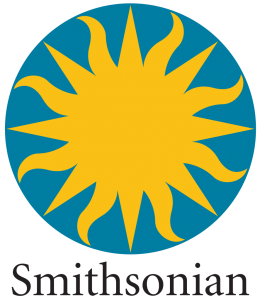OYSTER: Opportunities for Young Scientist Training, Education, and Research
National Oceanic and Atmospheric Administration:
Summer Internships for Undergraduates, Recent Graduates, and Graduate Students
The NOAA Chesapeake Bay office has announced three summer internship opportunities for future scientists. All internships are offered in partnership with Chesapeake Research Consortium.
Note that applications are due February 20, 2018
All three internships are paid and run 12 weeks from May to August. The three positions are as follows:
Oceanographic Instrumentation Support Intern: Undergraduates will help with instrumentation, data entry, and field work on the Chesapeake Bay Interpretive Buoy System. Located in Annapolis, Maryland.
Field Technician Intern: Undergraduates will assist with hydrographic surveys that help scientists and resource managers better understand the Chesapeake Bay ecosystem. Located in Annapolis, Maryland.
Hydrodynamic and Hydrologic Modeling Intern: Undergraduates, recent graduates, or graduate students will evaluate the effects of improved freshwater inflow modeling on the Chesapeake Bay Operational Forecast System’s salinity simulations. Located in State College, Pennsylvania in partnership with the NOAA Mid-Atlantic River Forecast Center.
Applications require a cover letter, resume, and two references, and are due by February 20, 2018.
Smithsonian Environmental Research Center
Summer internship opportunities for undergraduates and grad students
 Undergraduates and graduate students can gain hands-on experience in environmental research and public engagement this summer. Currently enrolled undergraduate and Master’s students, or recent grads, are eligible to apply. The internships run 10-16 weeks in length and are full-time commitments. All interns are required to complete a research project and present their findings at the end of their internship.
Undergraduates and graduate students can gain hands-on experience in environmental research and public engagement this summer. Currently enrolled undergraduate and Master’s students, or recent grads, are eligible to apply. The internships run 10-16 weeks in length and are full-time commitments. All interns are required to complete a research project and present their findings at the end of their internship.
Potential research project topics include biogeochemistry, citizen science, ecological modeling, ecosystem conservation, environmental education, fish & invertebrate ecology, and many more. To learn more about available projects, check out their website.
Here’s the link to apply.
Virginia Sea Grant
Opportunities for post-docs and grad students
Virginia Sea Grant has recently announced several new fellowship and funding opportunities. They have posted several post-graduate fellowships, including a recently added Coastal Resilience Post Graduate Fellowship with a deadline of March 16th. They are also accepting applications to their summer internships and research fellowships.
Maryland Sea Grant
Summer opportunities for undergraduates
Please invite your undergraduate students to apply for Maryland Sea Grant’s Research Experiences for Undergraduates in Estuarine Science. http://www.mdsg.umd.edu/REU
Note that applications are due February 16, 2018
DETAILS:
– Program Flyer download http://bit.ly/MDSGREU18
– 12-week program: May 20 to August 12, 2018
– $6,000 stipend plus housing and travel support to and from host institution
– Funded by the National Science Foundation and thus limited to US citizens or permanent residents
– Applications due: February 16, 2018
– Application and guidance http://ww2.mdsg.umd.edu/reu/
— Overview: Since 1989, NSF has supported bringing students to conduct individual research projects with a scientist-mentor at either Chesapeake Biological Lab or Horn Point Lab of the University of Maryland Center for Environmental Science. This is a great opportunity to conduct research with a mentor and spend a summer by the Chesapeake Bay.
MDSG selects undergraduates in diverse disciplines, including engineering, biology, chemistry, physics, mathematics, ecology and marine and environmental science.
MDSG is particularly interested in supporting talented students from institutions where access to marine science and to research projects is limited and who are from underrepresented groups in science, technology, engineering and math (STEM). Feel free to send any questions to MDSG at reu@mdsg.umd.edu.
National Aeronatics and Space Administration
Graduate Student Fellowship Opportunity
NASA Office of Education opened a call for graduate research proposals on January 17, 2018. The NASA Research Announcement (NRA) NNH18ZHA003N: NASA Fellowship Activity 2018 is seeking student authored and independently conceived graduate research proposals responding to a NASA Research Opportunity listed in the solicitation.
The NASA Fellowship Activity provides financial support to graduate students pursuing a Master’s or Doctoral degree in STEM while partaking in graduate unique research projects under the guidance of an institutional Principal Investigator in collaboration with NASA Technical Advisers. A list of available opportnities at different NASA laboratory locations is provided in the solicitation. Coordination with the potential NASA Technical Adviser is mandatory. Each proposed research project is developed in response to one of the NASA Fellowship Research Opportunities, and each proposal shall include a letter of support from a NASA Center researcher stating their concurrence with the proposal and their willingness to serve as a NASA Technical Adviser.
Proposals are due March 20, 2018. For full program details, visit https://nspires.nasaprs.com/external/solicitations/summary!init.do?solId={1CA633C8-7767-8658-6260-F318694A347B}&path=open.
Potential applicants are encouraged to pre-read the solicitation document and submit possible questions to NASA.Fellowships@nasaprs.com. Responses to all inquiries will be answered by email and also posted at the Frequently Asked Questions (FAQ) located in the solicitation page in NSPIRES; anonymity of persons/institutions who submit questions will be preserved.
Student Spring Work Opportunity on the Delaware Bay
with Western Hemisphere Shorebird Reserve Network
Laura Chamberlin, with Manomet and the Western Hemisphere Shorebird Reserve Network (WHSRN) is looking for a few students to help for a couple of projects on the Delaware Bay this coming spring. One of the key projects is a beach stewardship project with a monitoring component. The project will post volunteers on the beach to provide education and help reduce disturbance of migratory shorebirds. The students will also be conducting observational surveys and intercept surveys of visitors to measure their changes in behavior, knowledge, and opinion. These are paid positions.
Laura is hoping to connect with faculty and stuudents in social science or natural resource departments to recruit a few students. Please consider sharing this with students, forwarding to students who may be interested, or contacting Laura directly.
